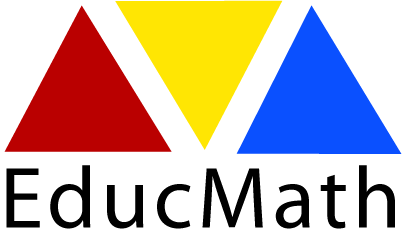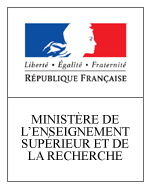Tamagocours
A digital game to learn the copyright rules for the use of digital resources in an educational context.
Tamagocours is a serious game that helps teachers trainee to prepare the IT and Internet certificate, level 2 (C2i2e).
V 1.1 of the application is available. It was experimented with 200 students from ENS Lyon. The game and the results of the experimentation will be presented at ECGBL 2014 in Berlin

Team
|
|
|
Project lead by Benjamin ABRIAL (development, gameplay), Quentin BONNET (development), Gaetan DESHAYES (development), Valérie EMIN-MARTINEZ (development and instructional design), Yvonnick FESSELIER (development), Dominique MANIEZ (Univ. Lyon 2, Internet and legal expert), Patrick MATHIEU (instructional design), Guillaume ROUSSEL (graphics), Eric SANCHEZ (Didactics, gameplay), Etienne SANCHEZ (sound design).
In collaboration with Nathalie ALAZARD-DANY (Study Department, ENSL), Pierre BENECH (instructional design, IFE ENSL) Sophie FERMIGIER (Training, IFE ENSL), Caroline JOUNEAU-SION (gameplay), Catherine LOISY (C2i2e expert), Stéphane MARCHAND (C2i2e coordinator), Céline RECURT (research assistant), Florence USCLADE (research assistant), Samy FOUDIL (research assistant) Maxime TREBITSCH (ENSL student), Jana TRGALOVA (Didactics)
The game synopsis
This is a collaborative multiplayer online game lying on a metaphor: a Tamagotchi must be fed to stay alive. The player has to feed a Tamagocours with lawful pedagogical resources (pictures, sounds, videos, articles, publications for teaching purposes, other publications) in order to "feed" it.
Every student team has a mission : to breed a Tamagocours by providing it digital resources used at school. The team is automatically trained online. TamagoCours appears as a character in good health or not, depending on the resources provided. These resources are free or not, copyrighted or not. It must be fed with lawful resources that respect the frame of copyright exceptions for education.
The player/learner can enter a legal library that presents the links to the legal rules for the use of different resources at school. The players can start again a level they have lost with no limitations so that they reach a minimum score. The results table of each level won can be used to validate part of the IT and Internet certificate.
The digital records for each team are saved during each game session and can be used by the teacher/trainer for the debriefing session.
What is a serious game for?
The design choices were made according to the 3E development model (Sanchez et al., 2012). It is about combining the necessity for the learner/player to have simple rules easily understood, and keeping a high level of authenticity concerning the subject and the skils developed, despite the metaphorical dimension of the learning situation.
The "serious game" approach was chosen as it is meant:
- to favor the commitment of the player/learner into carrying out complex tasks about a subject to which it is hard to get commitment (the game motivational aspects are related to the form of the pedagogical activity) ;
- to develop skills during action by facing questions which are close to those occurring in real professional situations (learning authenticity) ;
- to be adapted to the constraints of ENS Lyon, and, beyond, of all the establishments that are concerned by the implementation of IT and Internet certificate (The pedagogical team and students availability are both limited, asynchronus and online training sessions are needed).
Calendar
April-july 2012 - game specification to develop (game play, legal rules, data model)
June-september 2013 - develoment of the beta version
Beginning of september 2013 - beta version test
September-october 2013 - development of V1.0 version
November 2013 - finalization of V1.0
End of november 2013 - V1.0 test with a group of students preparing the Maths aggregation contest (20)
March 2014 - deployment of V1.1 (300 students)
References
Sanchez, E. (2013). Tamagocours, a digital game about the laws that frame the usage of the digital resources Proceedings of VIIe Symposium « Questions about pedagogies in Higher Education » (pp. 528-536). Sherbrooke, Qc, Canada.
See the proceedings
Bibliography
MESR. (2012). C2i niveau 2 enseignant.: Retrieved fromhttp://www.c2i.education.fr/spip.php?rubrique11.
Sanchez, E. (2011). Key criteria for Game Design. A Framework. . MEET Project. European Commission. from www.reseaucerta.org/meet/Key_criteria_for_Game_Design_v2.pdf
Sanchez, E. (2012). Serious game ou serious play ? Interactions et apprentissage avec des jeux sérieux. ARGOS, CNDP.









